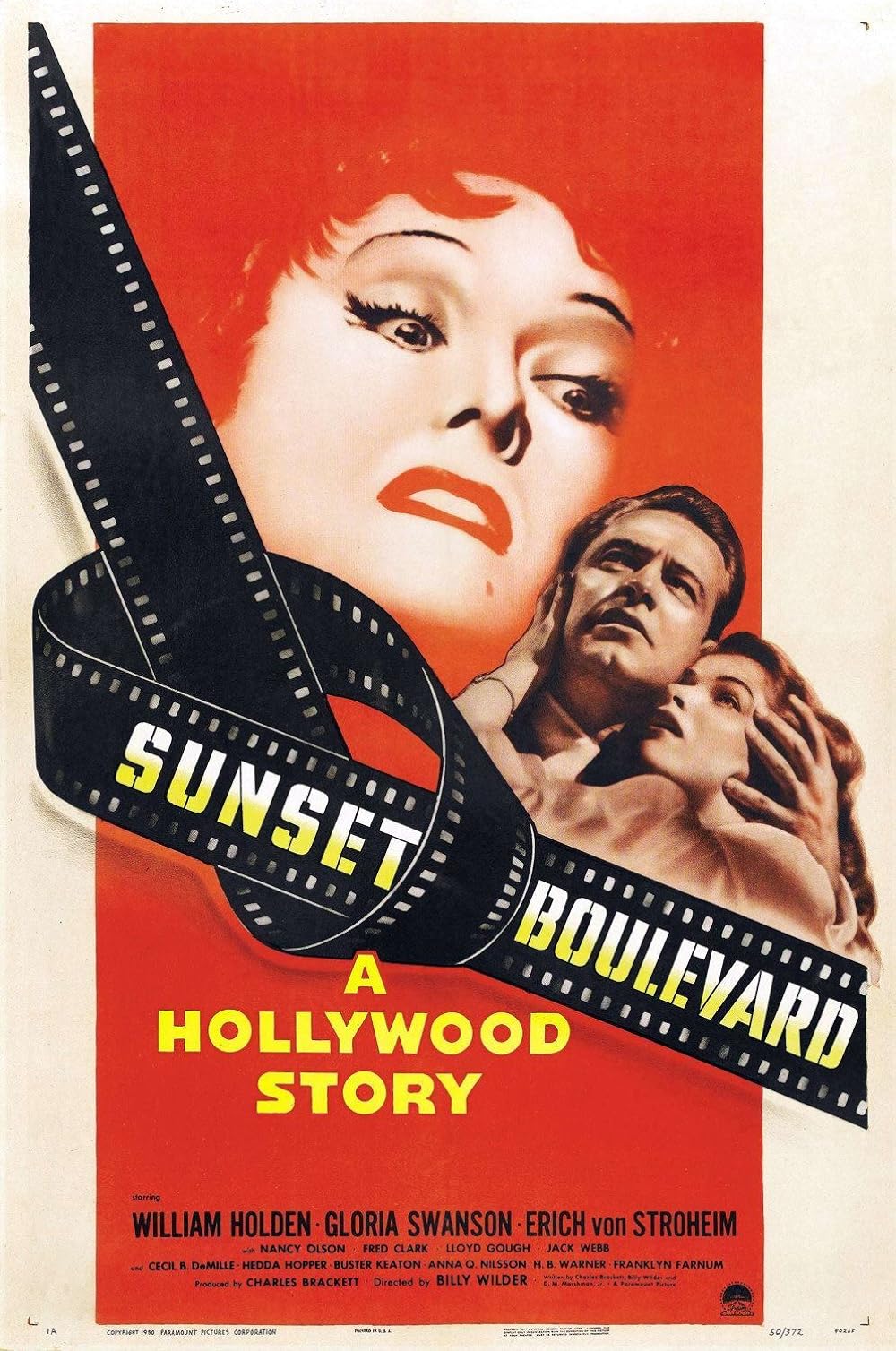Sunset Boulevard (1950) – A Haunting Masterpiece of Hollywood Noir
Type: Movie
Country: United States
Genre: Drama, Film Noir
Release Date: August 10, 1950
Duration: 110 minutes
Director: Billy Wilder
Production Companies: Paramount Pictures
Cast: William Holden, Gloria Swanson, Erich von Stroheim, Nancy Olson
Quick Review:
“Sunset Boulevard” (1950), directed by Billy Wilder, is an iconic film noir that delves into the dark underbelly of Hollywood. With a gripping plot, stellar performances, and masterful direction, it remains a timeless classic that explores the pitfalls of fame and the illusion of stardom. Gloria Swanson’s portrayal of Norma Desmond is both haunting and mesmerizing, solidifying the film’s status as a cornerstone of cinematic history.
Plot Summary:
“Sunset Boulevard” follows Joe Gillis (William Holden), a struggling screenwriter in Hollywood, who stumbles into the life of Norma Desmond (Gloria Swanson), a faded silent film star living in her decaying mansion on Sunset Boulevard. Desperate for money and work, Joe becomes ensnared in Norma’s delusional world, where she dreams of making a triumphant return to the screen. As Joe becomes her script doctor, and ultimately her companion, he realizes the dangerous depths of Norma’s obsession with her past glory. The film’s narrative is framed by Joe’s posthumous voiceover, unraveling the events leading to his tragic demise in Norma’s mansion.
Characters and Performances:
- William Holden (Joe Gillis): Holden delivers a nuanced performance as the cynical and desperate screenwriter. His portrayal of Joe’s moral decline and entrapment in Norma’s web is both compelling and tragic.
- Gloria Swanson (Norma Desmond): Swanson’s performance is legendary, capturing Norma’s grandiosity, fragility, and descent into madness with startling authenticity. Her line, “I am big. It’s the pictures that got small,” has become one of cinema’s most memorable quotes.
- Erich von Stroheim (Max von Mayerling): As Norma’s devoted butler and former director, von Stroheim brings depth to his character, revealing layers of loyalty and sorrow. His understated performance contrasts sharply with Swanson’s flamboyance, adding to the film’s tension.
- Nancy Olson (Betty Schaefer): Olson provides a refreshing counterpoint to the dark narrative as the optimistic and honest script reader who dreams of writing her own stories. Her chemistry with Holden’s character introduces a glimmer of hope amidst the darkness.
Direction and Cinematography:
Billy Wilder’s direction is impeccable, masterfully blending elements of noir with a biting critique of Hollywood. His use of voiceover narration creates a sense of inevitability and doom. Cinematographer John F. Seitz’s work is equally brilliant, using shadows and light to enhance the film’s moody atmosphere. The decaying opulence of Norma’s mansion is captured in exquisite detail, symbolizing the decay of her dreams and sanity.
Music:
Franz Waxman’s score is hauntingly beautiful, perfectly complementing the film’s melancholic tone. The music underscores the tension and drama, elevating key scenes to iconic status. The recurring themes associated with Norma and Joe add emotional depth to their tumultuous relationship.
Why It Endures:
“Sunset Boulevard” endures because of its timeless exploration of themes such as fame, obsession, and the inevitable passage of time. The film’s sharp critique of Hollywood’s superficiality and its treatment of aging stars remains relevant today. Its rich characters, unforgettable performances, and masterful direction ensure that it continues to captivate audiences. The film’s influence can be seen in numerous subsequent works that explore similar themes.
In Conclusion:
“Sunset Boulevard” (1950) is a cinematic masterpiece that offers a dark, introspective look at the cost of fame and the disillusionment of Hollywood. Directed by Billy Wilder and featuring standout performances by Gloria Swanson and William Holden, the film is a testament to the power of storytelling. Its haunting narrative, coupled with brilliant cinematography and music, makes it a timeless classic that continues to resonate with audiences. “Sunset Boulevard” is not just a film; it is a profound commentary on the ephemeral nature of stardom and the haunting shadows it leaves behind.


